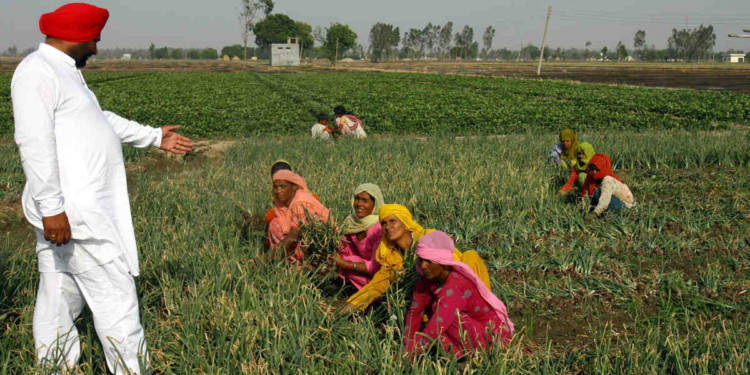As the Union government passed the three agriculture bills, the rich farmers from Punjab and Haryana, and others with their tractors, came out to protest. The protest has a political dimension– Congress is the ruling party in Punjab and it performed excellently in Haryana in the last legislative election- but the economic dimension of it is more important.
So, why are the protests most intense in Punjab and Haryana, the states which benefited most from Green revolution and have the richest farmers of the country- some farmers who are millionaires and do not have to pay taxes because agricultural income is tax-exempt- are protesting even as those in poorer states- even Bihar which is to undergo assembly election in next few weeks- are happy with the bills. You see, it’s a rich farmer versus poor farmer issue.
The existing system of Agricultural subsidies, from seed to fertilizer, the power to produce, and every other step in agriculture is subsidized and it costs around 5 lakh crore rupees (approx GDP of Bihar) to the governments. Rich farmers benefited most from the existing system. But, remember that around 75 percent of Indian farmers (3 out of 4) are small and marginal farmers, and they benefit from the new reforms.
The existing system of agricultural subsidies benefited the farmers with large landholdings because only they have the financial, social, and political capital to benefit from subsidies. For example, take the power subsidy for irrigation- given the fact that only big farmers can afford to set up a tube well for irrigation and small farmers are dependent on them (and pay them for using their tubewells), only the farmers with large landholding benefit from power subsidy.
Now, take the MSP. Although the government has promised that MSP will stay and big farmers are being misled by the political parties that the government is ending MSP with these bills, the fact remains that only large farmers benefit from the system of Minimum Selling Price. The big farmers sell their produce directly to the Food Corporation of India while the small peasants sell it through traders who then sell their produce to FCI. So, as far as MSP is concerned, only traders and big farmers (that too from the state of Punjab and Haryana and 80 percent of total money on MSP is spent in these states) from the existing system, and therefore, in the fear of losing MSP, they are protesting.
So, the existing system favors a handful of big farmers in the state of Punjab and Haryana while the rest of the country pays for it and the new bills will free up the small peasants from the monopoly of APMCs which will lead to better price realization for their crops. Indian agriculture is the only sector in the world where the government was taxing the poor to grant subsidies to the rich.
The bills passed by the government-Farmers’ Produce Trade and Commerce (Promotion and Facilitation) Bill, 2020, The Farmers (Empowerment and Protection) Agreement on Price Assurance and Farm Services Bill, 2020, and Amendment to 1955 Essential Commodities Act- would free the farmers from the clutches of traders, bureaucrats, politicians, and the government, and bring them on par with Industrial and service producers who sell the produce in an open market.
Once these bills become law, the farmer will be able to sell the produce anywhere in the country and the monopoly of APMCs will end. As of now, a farmer who is producing some crop in a certain district can sell it in the APMC of that district only which means there could be a ‘monopoly’ of the APMCs controlled by local politicians.
The development of a nationwide market will not only benefit the farmer but consumer, too. The price of wheat, rice, or lentil in cities is two to three times higher than that of villages but once a nationwide market is developed, the prices throughout the country will be similar to a large extent.
Moreover, the farmer will not have to be dependent on Minimum Selling Price (MSP)- which has become the ‘Maximum’ Selling Price for most of the crops- for better price realization. MSP also benefits the traders and big farmers, not the small and poor ones; so a reduction in dependence on MSP will also help the farmers.
Therefore, these bills will harm political parties like NCP, SAD, INLD which have colonised the farmer. These bills will also hurt corrupt bureaucrats; but they will help the farmers, especially the small and marginal ones, in better price realization
























